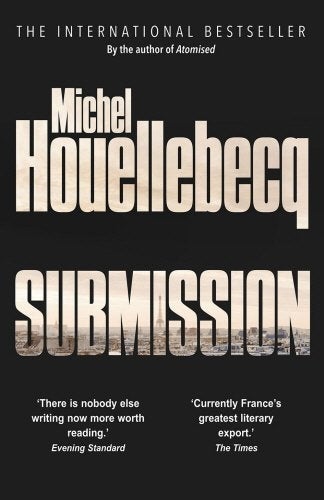Submission, By Michel Houellebecq - book review: Subtlety amid the provocation
William Heinemann - £18.99

Your support helps us to tell the story
This election is still a dead heat, according to most polls. In a fight with such wafer-thin margins, we need reporters on the ground talking to the people Trump and Harris are courting. Your support allows us to keep sending journalists to the story.
The Independent is trusted by 27 million Americans from across the entire political spectrum every month. Unlike many other quality news outlets, we choose not to lock you out of our reporting and analysis with paywalls. But quality journalism must still be paid for.
Help us keep bring these critical stories to light. Your support makes all the difference.
Michel Houellebecq is no stranger to controversy. In 2002, the French author faced up to 18 months in jail accused of inciting religious hatred after an interview in the literary magazine Lire in which Houellebecq was quoted as saying “Islam is the stupidest religion”. His sixth novel, Submission, set in 2022, is about France becoming an Islamic state. Its French publication coincided with the Charlie Hebdo massacre. The same day, the satirical magazine’s cover had featured a caricature of Houellebecq under the headline: “The Predictions of Wizard Houellebecq.”
In this novel, François is an academic at the Sorbonne. He is an expert on the 19th-century nihilist novelist Joris-Karl Huysmans, who converted to Catholicism later in life. François is suffering his own existential crisis. In the run-up to the presidential elections, two candidates are neck and neck: Marine Le Pen of the National Front and Mohammed Ben Abbes of the fictional Muslim Fraternity party. After the centre-right party and the Socialists form a coalition and back Ben Abbes, his success is assured. On taking power, women are veiled, polygamy becomes the norm and the new government initiates the southward expansion of the European Union. After the Saudis take over the funding of education, university academics like François face losing their jobs unless they are willing converts to Islam.
There are echoes of Albert Camus’s outsider, Meursault, in François’ lack of emotion and relentless cynicism. Some weeks after his mother’s death, François returns home to find a letter informing him that “the city had deposited my mother’s body in the common division of the municipal cemetery.” Later he refers to her as “that neurotic bitch”. François’ relationship with his Jewish girlfriend, Myriam, a former student, is motivated by lust rather than love and after she leaves for Israel he resorts to trawling the internet for soft porn and escort services. On his dismissal from university, with a generous early retirement package, François’ main lament is that “the end of my academic career had deprived me of all contact with female students”.
Submission, expertly translated by Lorin Stein, can be read on a number of levels. As much as it is about Islamic and political tensions in France, Houellebecq also explores the inner world of his chauvinistic antihero who struggles to find meaning in his life and seeks solace in sex. François yearns for a similar epiphany to that experienced by Huysmans. By the end, one realises that if Francois does submit, it will not be to the will of God but because he is seduced by the promise of an increased income, less work, and at least two wives.
Join our commenting forum
Join thought-provoking conversations, follow other Independent readers and see their replies
Comments